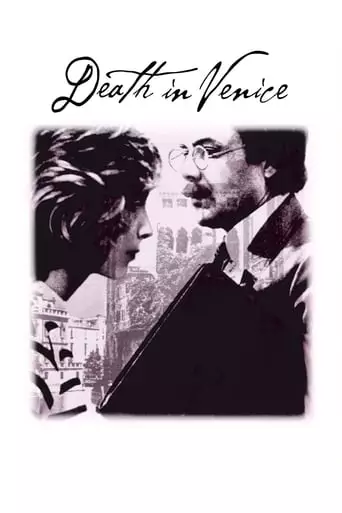Composer Gustav von Aschenbach travels to Venice for health reasons. There, he becomes obsessed with the stunning beauty of an adolescent Polish boy named Tadzio who is staying with his family at the same Grand Hôtel des Bains on the Lido as Aschenbach.
Death in Venice (1971), directed by Luchino Visconti, is a poignant adaptation of Thomas Mann’s novella, exploring themes of beauty, obsession, and mortality. The film follows Gustav von Aschenbach, a renowned composer in his early fifties, who seeks solace in Venice after a period of personal and professional turmoil. Upon his arrival, he becomes captivated by Tadzio, a young Polish boy whose ethereal beauty embodies the ideal of youthful perfection. As Aschenbach’s infatuation deepens, he becomes increasingly aware of the city’s deteriorating condition, mirroring his own internal decay. The narrative intertwines Aschenbach’s artistic aspirations with his obsessive desire, set against the backdrop of Venice’s opulent yet decaying landscape.
Main Themes in Death in Venice
- The Conflict Between Reason and Passion: Aschenbach’s disciplined, rational life as a composer is disrupted by his overwhelming desire for Tadzio. This internal struggle highlights the tension between intellectual control and the uncontrollable nature of human emotion. His descent into obsession reflects the dangers of surrendering to unchecked passion.
- The Pursuit of Beauty and Its Consequences: The film delves into the concept of beauty as both an inspiration and a destructive force. Aschenbach’s idealization of Tadzio leads him to neglect his health and well-being, illustrating the perilous allure of unattainable perfection. This theme examines the fine line between admiration and obsession.
- Mortality and Decay: Venice’s physical decline due to a cholera outbreak parallels Aschenbach’s personal deterioration. The juxtaposition of the city’s decay with the vibrancy of youth embodied by Tadzio underscores the transient nature of life and the inevitability of death. This theme reflects on the fragility of existence and the human condition.
- Artistic Inspiration and Obsession: Aschenbach’s encounter with Tadzio reignites his creative spirit, yet his fixation becomes all-consuming. The film explores the fine line between artistic inspiration and obsession, questioning the cost of artistic pursuit and the sacrifices made in its name. This theme examines the complexities of the artist’s journey.
Impact of Death in Venice (1971)
Upon its release, Death in Venice received critical acclaim for its visual artistry and profound thematic exploration. The film’s meditative pace and stunning cinematography, particularly its portrayal of Venice, captivated audiences and critics alike. Visconti’s direction, combined with Gustav Mahler’s evocative music, created a haunting atmosphere that resonated deeply. The film’s exploration of complex themes such as obsession, beauty, and mortality sparked discussions on the nature of desire and the human condition. Its influence extends beyond cinema, inspiring analyses in literature and art, and it remains a significant work in the study of film adaptations of literary classics.
7 Reasons to Watch Death in Venice (1971)
- Masterful Direction by Luchino Visconti: Visconti’s meticulous craftsmanship brings Thomas Mann’s novella to life with elegance and depth. His ability to convey complex emotions through visual storytelling makes the film a compelling experience.
- Stunning Cinematography: The film’s cinematography captures the haunting beauty of Venice, using the city’s decaying grandeur to mirror the protagonist’s internal turmoil. The visual composition enhances the film’s meditative and melancholic tone.
- Evocative Musical Score: Gustav Mahler’s compositions underscore the film’s emotional depth, with the Adagietto from his Fifth Symphony serving as a poignant leitmotif. The music amplifies the film’s themes of longing and despair.
- Exploration of Universal Themes: The film delves into timeless themes such as the conflict between reason and passion, the pursuit of beauty, and the inevitability of death. These themes resonate on a deeply human level, prompting introspection and discussion.
- Complex Character Study: Gabriele Ferzetti’s portrayal of Gustav von Aschenbach offers a nuanced depiction of a man grappling with his desires and mortality. His performance captures the character’s internal conflict and transformation.
- Atmospheric Setting: The film’s setting in Venice, with its canals and architecture, serves as more than just a backdrop; it becomes a character in itself, reflecting the themes of decay and beauty. The city’s ambiance enhances the film’s contemplative mood.
- Cultural and Cinematic Significance: Death in Venice stands as a significant work in the canon of film adaptations of literary classics. Its influence extends beyond cinema, inspiring discussions in literature and art, and it remains a significant work in the study of film adaptations of literary classics.
How Will You Feel After Watching Death in Venice (1971)?
Watching Death in Venice is an emotionally intense experience. The film’s meditative pace and profound themes may evoke feelings of melancholy and introspection. The portrayal of Aschenbach’s internal struggle and his obsession with Tadzio can lead to a sense of unease and contemplation about the nature of desire and the human condition. The film’s open-ended conclusion may leave you with lingering thoughts on the transient nature of life and the inevitability of death. As you reflect on the protagonist’s journey, you may feel a mixture of sadness, empathy, and admiration for his emotional depth, even as you recognize the destructive nature of his obsession.
The atmosphere of Venice, with its decaying beauty, will likely evoke a sense of nostalgia and contemplation on the passage of time. The film’s melancholic tone, combined with the haunting music of Mahler, creates an immersive experience that stays with you long after the film ends. You may find yourself reflecting on the complexities of human nature, particularly the struggle between reason and passion, as well as the pursuit of unattainable ideals.
Overall, after watching Death in Venice, you will likely feel emotionally moved and intellectually stimulated, with the film’s profound themes leaving you with a deep sense of introspection about beauty, obsession, mortality, and the fragility of life. The film’s somber yet poetic nature will linger in your mind, prompting you to contemplate your own desires, aspirations, and the passage of time.

